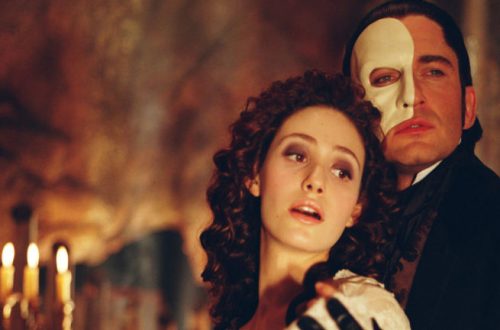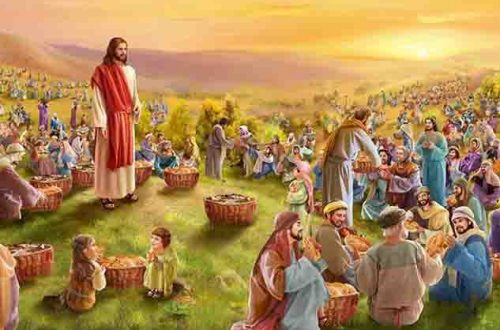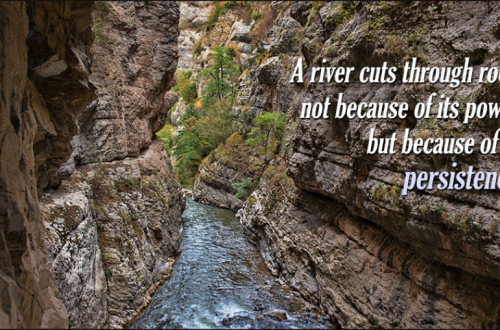The Self-Pity Wilderness
Leadership is broken because leaders are unbroken
Wilderness Wanderings Series:
Learning to Live the Zigzag Life
Self-pity is the life-destroying quicksand of the wilderness that sucks us in, pulls us down, and squeezes the hope out of us.
Often it catches us unaware and, because we are unprepared, it robs us of all confidence and courage so we are left with loss of energy, distorted reality, and deep discouragement…
Gradually we are pulled down, down, down until we disappear below the surface of life, all vision gone and our leadership lost in the sink hole of self. What a pity.
Self-Pity is not for Wimps
It is amazing what kind of people get caught up in self-pity. We tend to think they are weak people, wimperers, complainers, failures who don’t have the strength to overcome adversity and rise above their circumstances. Certainly, in some instances, this is true, but not in every one.
Consider Elijah the prophet who was anything but a weak wimperer unable to overcome adversity. His life as a prophet demonstrates that facing and overcoming adversity was what he was all about. Even his name, Elijah, meaning Yahweh is my God, put him in a position of adversity. He lived in a place and time of Baal worship sanctioned by Ahab and Jezebel, king and queen of Israel, and he was called by God to confront this horrendous idolatry.
Baal, the god of fertility, regarded as the source of all life and prosperity, had been imported into Israel by Jezebel, princess of Phoenicia, who married Ahab in a wedding designed to create a political alliance between Israel and Phoenicia. Baal worship involved the total rejection of Israel’s true God and included human sacrifice, totally repulsive to all who honored Yahweh.
Elijah, a transplanted Galilean, became a settler in Gilead on the east side of the Jordan, an inhospitable desert, rugged and demanding, and he became as rugged as the place where he lived. He wore a camel hair garment with a leather belt around his waist, and he must have been a shocking sight striding down the streets of sophisticated Samaria, the capital of Israel, directly up the palace steps and into the king’s presence where he confronted Ahab.
With no apparent introduction or preparation, Elijah announced that, “there will be neither dew nor rain in the next few years except by my word.” With that he disappeared for three years—and there was neither dew nor rain as he said.
Ahab became furious, searching for this wild man who had devastated his economy and threatened to turn his kingdom upside down. When Elijah finally appeared, he issued a challenge to Ahab and the four hundred priests of Baal imported by Jezebel (who had killed all the prophets of God in an effort to stamp out Yahweh worship) to meet him on Mt. Carmel for a contest between Baal and Yahweh.
The challenge was accepted, the contest held, and Yahweh defeated Baal. At that point the drought broke rain came. Ahab rushed in his chariot to tell Jezebel of the events of the day, but Elijah, in the power of the Lord, ran ahead of Ahab all the way to his palace.
What a man, this wild, rugged desert prophet with the courage to confront the king and call down fire from heaven, who could run faster than horses in the Lord’s power. Surely he would never get caught in the quicksand of self-pity.
Look what happens next.
Tomorrow You Die!
Jezebel, in her fury, sent him a message: this time tomorrow you will be like one of the priests of Baal—dead! Elijah was afraid and ran for his life. He who ran in the power of the Lord now ran with fear in his heart all the way to Beersheba in the Sinai wilderness. He went a day’s journey from there and sat down in the shade of a desert bush and said to the Lord, “Take my life: I am no better than my ancestors.”
Eventually, after zigzagging across the wilderness, he arrived at Mt. Horeb, the place where Moses met God several hundred years before. There, in a still small voice, the Lord asked him, “What are you doing here, Elijah?” It’s a probing question that asks why must I come here to find you, Elijah? The last time we were together was on Mt. Carmel when I sent down fire from heaven in response to your prayers. What happened to the fearless prophet I sent to Ahab? He is sinking in the quicksand of self-pity, speaking irrationally, telling the Lord to take his life—something Jezebel would gladly have done weeks before and saved him his grueling wilderness trek.
Elijah, the strong, the fearless, the powerful, the confident, the courageous, the Yahweh is my God prophet, now a pitiful broken man shackled by a self-focused sorrow for himself—a totally self-centered man.
Where did this come from? Did he have the illusion that he was superior to his ancestors? Certainly that illusion is shattered. Did he live in the deception that his success as a prophet was due to him? That deception has morphed into depression. Any thought that his achievements came through his superiority simply demonstrated his inferiority.
Elijah, What Happened to You, Elijah?
The same thing happens to all of us when we are deceived by our illusions of superiority. You see, Elijah had a nature just like ours; he was a man just like us, prone to the illusion and deception of self, liable to fall when he thought he could stand.
We, too, can fall into self-pity, no matter how strong we are. The stronger we are, the further we fall.
How do we gain freedom from self-pity? When our psychology is distorted and confused by self-focused grief, how do we find restoration? Look how God responded to Elijah.
When God wanted to change Elijah’s psychology, He changed his theology. Elijah’s theology was totally centered on himself. He, only he was left, and they were trying to kill him as well. All the rest were dead or deserters. Everything was up to him, and it was too much for him.
God responds with a task for him to do and with some information he knew nothing about. He has reserved seven thousand in Israel who have not bowed to Baal. You may be the most visible, Elijah, but you are not the only one left. Now get on with your life and get over this useless self-pity. You think much too highly of yourself.
We end up in self-pity when we think we are all alone and that everything is up to us. Little wonder, because God’s call is overwhelming and we are inadequate. But we need to understand that God doesn’t tell us everything He is doing; He wants us to trust Him, even when we think we’re the only ones left standing.
You see, God doesn’t tell us what He’s doing until He does it! If we need to know He tells us, but only when we need to know. Otherwise, He wants us to trust Him and stay focused on Him, not on ourselves. When God wants to change our psychology, He changes our theology.
What you and I need is a renewed theology that puts Him—and not us—at the center of our lives, a theology that recognizes His sovereignty, His faithfulness, His grace, and His power to do what we cannot do. We desperately need this truth and this trust to deliver us from the quicksand of self-pity.
The Church of Self-Pity
The church also needs this truth at the center of its thinking. We are an Elijah church today, a church caught up in ecclesiastical quicksand and given to self-focused self-pity. The church’s confidence is sapped by the cultural opposition of our time as we have lost our place in the sun in our culture.
We have been invited out of the conversation in our society’s public square. Our right of free speech is threatened and our right of freedom of religion is under attack as never before. Theological shallowness is epidemic in the land and our message has become a cloying, appeasing word of capitulation to the culture around us. When pastors want to deliver their followers from self-pity, they turn to psychology, not theology.
We treat God as the Great Psychologist, as if He is Charlie Brown solving problems for a nickel at a lemonade stand rather than as the sovereign Lord of the universe who is to be worshipped and trusted even when we have no idea what He’s doing. We fail to recognize in those moments when we are tempted as individuals and as a church to fall into self-pity that God is there in the still small voice if only we will listen for what He is saying.
It is not up to us, we don’t have to take control, we don’t have to solve the problem. Instead we must trust the only One who can solve our problems
We desperately need a fresh vision of the true God and His word of powerful grace that releases us, as individuals and as the church, from self-pity and sends us on our way with our mantle restored. That deliverance is ours if we will exchange our distorted man-centered and man-dependent thinking for a renewed theology of God and His power to act in our world.
Our deliverance lies, not in political victory or in moral superiority, but in the broken humility that comes through the still small voice of God that asks, “Why are you here, Christian? Why are you here 21st century church?”
We are here because a watered down theology means a permanent wilderness in our lives. We desperately need a renewed theology to have a renewed church.
From "The Self-Pity Wilderness" on www.leaderformation.org/blog
 About: The Broken Leadership Blog is about changing the leadership conversation from what we are doing with our hands to what God is doing through our hearts.
About: The Broken Leadership Blog is about changing the leadership conversation from what we are doing with our hands to what God is doing through our hearts.






One Comment
SonShine
I am Elijah
How many times am I just like Elijah. I so often forget that in light of eternity it really filters down to who I am and I am, although called, anointed, blessed by God, am just one worker bee in the kingdom. I may not see, nor even know the other little worker bees but my reflection is often skewed with the very self-pity of "me-ism". It is then that God calls to me and says "oh you little bee, you are just one of many who are doing my work. Open your eyes to see and you will be surprised." I wonder who will stand next to me in the eternal kingdom that was just like me, a worker bee in the earthly kingdom of other worker bees.
God says stuff the set-pity wardrobe of self-righteousness and that is exactly what we need to do.
Great thoughts….a "keeper" in my book.